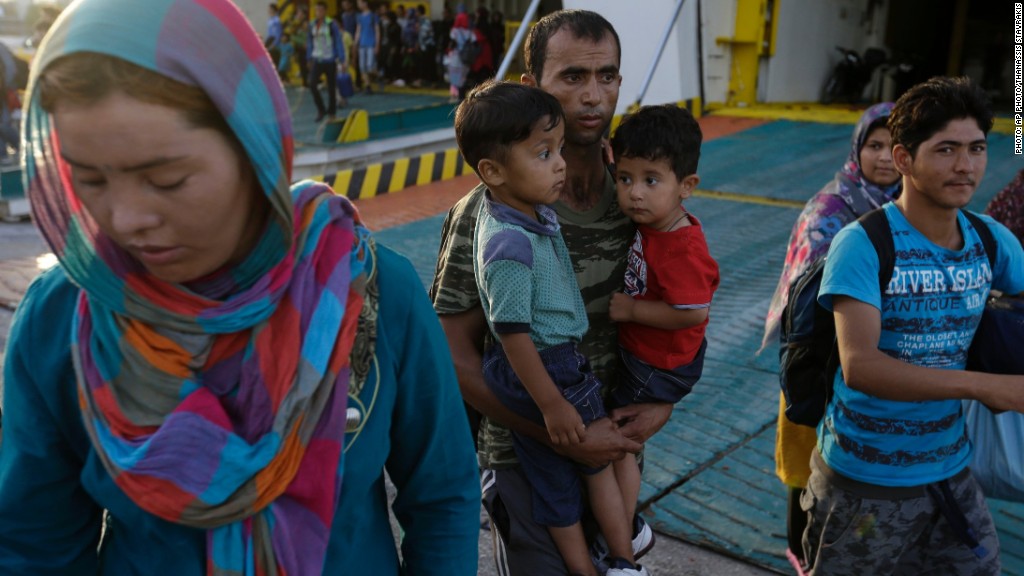
Jean-Christophe Dumont is head of international migration at the Organisation for Economic Co-operation and Development. Stefano Scarpetta is OECD director for employment, labor and social affairs. The opinions expressed in this commentary are those of the authors.
Europe can and must face the refugee crisis.
The humanitarian crisis we are experiencing is unprecedented, with an appalling and unacceptable human cost. This year will be historic, with probably close to one million people applying for asylum.
Managing this refugee crisis is particularly complex for a variety of reasons.
The diversity of the population flow -- Syrians, Iraqis and Eritreans accounted for less than 30% of registered asylum applications during the first five months of 2015 -- and the fact that European countries are affected unevenly, pose new problems.
The crisis is likely to persist as long as Syria and Libya remain in turmoil. And the sensitivity of public opinion on migration issues, as their economies exit a major crisis often with persistently high unemployment, influences the attempts to find a coordinated and unified solution.
How you can help in the migrant crisis
Some believe that the crisis is likely to weaken or even destabilize the economy and society of host countries.
Yet Europe has both the means and the experience to cope. Several countries have recently managed massive population displacement without jeopardizing their economic strength or social cohesion. This is the case, for example, with Germany, who welcomed more than three million people of ethnic German origin between 1988 and 2005.
In Spain, the number of immigrants tripled between 2000 and 2010, and in the United Kingdom the population of EU nationals has risen by more than a million since 2004. None of these cases involved large number of refugees, of course, but the economies of recipient countries have nevertheless benefited from these migration flows.
Related: Egyptian billionaire offers to buy island for refugees
The work of the OECD shows that migration, if well managed, can play a positive role in the economy. The evidence accumulated across a wide range of countries suggests that immigrants tend to pay more in taxes and social security contributions than they receive in benefits.
In Europe, 65% of the increase in the workforce between 2000 and 2010 is attributable to immigration. Over the same period, new immigrants accounted for 15% of admissions in fast growing professions, and 28% of those in decline, rejected by native workers.
The choice of destination countries, including for refugees arriving today, is not based on the generosity of social security systems. In the context of aging populations, the supply of labor and skills related to the influx of migrants can be an asset if integration into the labor market is fast.
Related: Don't just write a check! Get involved
Still, the reception and integration of refugees presents major challenges that cannot be underestimated. It is a difficult and costly task in the short term. Integration is complicated by the trauma suffered by migrants, their lack of preparation, poor language skills and the challenge they face in proving their competence.
Substantial investment is needed at first to allow them to settle and develop their skills. In the medium to long term however, refugees who decide to stay will contribute to the labor market and the economy of the country in which they live, in the same way as other immigrants have.
The response to the current crisis cannot, and should not, be justified by economic arguments. However, in the medium term one thing is sure: If Germany today welcomes the largest number of refugees, its economy will be the first to benefit.






